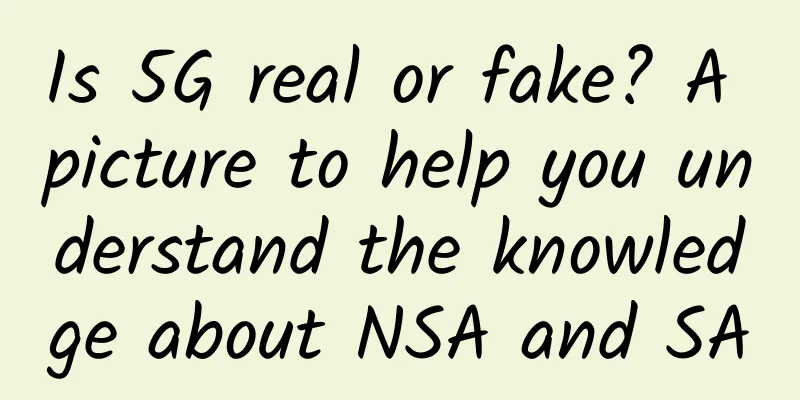Facebook: The next WeChat?

|
【Super Platform】 The world of the Internet is full of ups and downs. In the past few years, we always complained that Chinese Internet products were too similar to their foreign counterparts - QQ was too similar to ICQ, Weibo was too similar to Twitter, Renren was too similar to Facebook... But a few years later, the trend seems to have reversed, and foreign Internet giants are finally learning from China. On March 7, Zuckerberg published a blog post titled "A Privacy-Focused Vision for Social Networking." In this 3,200-word blog post, Zuckerberg talked about his understanding of the future development of social media. He pointed out that "in the future, communication will shift to private, encrypted services, where users can trust that their communication with others is safe". In order to match this trend, he and Facebook, which he leads, plan to start with the most core and private communication method - messaging, and gradually develop services such as calls, groups, story sharing, electronic payments, and e-commerce on this basis. In addition, he also said that Facebook will continue to promote the integration of several of its applications, such as Instagram, WhatsAPP and Messenger, into one platform. Promoting social networking to a more private way, developing multifunctional supporting services, integrating applications with different functions... As Zuckerberg himself said, this is likely the direction that social media should go in the future. The only question is, isn't this future the WeChat we are familiar with? It’s big news that Facebook, the leader in social media, is going to learn from WeChat! So, why does Facebook want to change? Can it successfully transform? In the future, will we see two completely identical products? To answer these questions, we must first talk about the respective characteristics of Facebook and WeChat. “Plaza” and “Living Room” Although Facebook and WeChat have very little direct competition for various reasons, they are often compared in various reviews. These two social products, one of which dominates the European and American markets, and the other firmly holds the leading position in the Chinese market, seem to have a lot in common. However, if you compare the two products carefully, you will find that their differences are actually far greater than their similarities. This difference is first reflected in the way they socialize. Although both are social products, Facebook focuses more on public domain social interaction. Every user can post their own status, upload pictures and videos about themselves, and let their friends browse and comment on them, all of which are public. In contrast, WeChat evolved from an instant messaging software, so its social interaction is more inclined towards private point-to-point communication. Although the social functions of the two products have converged in the process of continuous development and evolution - Facebook also launched Messenger for instant communication between users, and WeChat also has Moments to provide public domain social interaction, but overall, these subsequent added functions have not changed the overall temperament of the two software. Fundamentally, the difference between Facebook and WeChat in social interaction is still very obvious. Zuckerberg once used a metaphor, saying that Facebook is very much like a square, where everyone can play and socialize together, while products like WeChat are like people's living rooms, where close friends can have long conversations. Although this metaphor is a bit crude, it really captures the essence of the two products. In addition to the difference in social methods, the profit models of the two products are also very different. In essence, both Facebook and WeChat are multi-sided platforms, attracting huge traffic through free social services and then monetizing this traffic in other markets. However, the monetization methods of the two are very different. Facebook's monetization method is relatively "simple and crude", that is, pushing ads to users and then charging advertising fees. After years of exploration, it has found a very complete advertising model, which can make the originally commercial ads very exquisite and native, and integrate them with other information, so that users want to read them. For example, Facebook has a kind of "canvas" advertisement that users can interact with. Statistics show that the average user time of this kind of advertisement is as long as 31 seconds. In today's world where users are reluctant to watch advertisements and want to skip them as soon as they see them, it is a miracle that this kind of advertisement can achieve such a long reading time! Facebook has attracted a large group of advertisers with excellent advertising production capabilities, and their advertising investment has brought Facebook a lot of income. According to the financial report released by Facebook, in the fourth quarter of fiscal year 2018, Facebook's total revenue was 16.9 billion US dollars, of which advertising contributed as much as 16.6 billion US dollars. In other words, advertising revenue accounted for as much as 98.2% of total revenue! This number has already explained everything about Facebook's profit model. Compared to Facebook, WeChat relies much less on advertising. In fact, for a long time after its launch, WeChat had no revenue from advertising. Although WeChat has also begun to embed advertisements in Moments, mini-programs, and public accounts in recent years, its strength is still not comparable to Facebook. This is certainly related to the original design of WeChat - as Zhang Xiaolong said, WeChat should be the user's friend, and friends cannot watch ads before communicating, but the more important reason is that WeChat has found a profit model other than advertising. In a sense, WeChat is now more of a "quasi-operating system" than a social software. It has assumed the role of a "platform of platforms". Through WeChat, we can make payments, transfer money, and link to other applications to achieve various functions such as shopping, travel, and games. In the process of these diversions, WeChat can charge corresponding fees, so there is no need to rely too much on advertising revenue. Why Facebook changed Why did Facebook learn from WeChat and switch from public social networking to private social networking? A popular explanation is that Facebook sees greater profit potential in the WeChat model. This view sounds reasonable, but there is insufficient supporting evidence. Although the market overlap between Facebook and WeChat is small, it is difficult to directly compare the business models of the two products. However, some statistics may also explain some problems. Currently, Facebook has 1.5 billion active users, while WeChat has around 1 billion, and Facebook is clearly superior; in terms of profitability, Facebook's "Average Revenue Per User" (ARPU) in Europe and the United States has reached US$14, while WeChat's ARPU is only half of that. In addition, more macro data such as revenue and market value also show that Facebook is still superior to WeChat and even Tencent as a whole. From this perspective, if Facebook is learning from WeChat out of profit motive, this view is probably difficult to hold. So, what is the real reason for Facebook's transformation? One reason is the pressure on public social networking. Since the "Cambridge Analytica" incident, the Facebook-style public social model has been widely controversial. Since most of the social information posted by users on Facebook is public, people can easily collect various information about users through Facebook and infer their various characteristics - for example, the widely criticized "Cambridge Analytica" used entirely these so-called public information, rather than the private information in the Facebook backend. In this context, many people began to doubt the security of the public social model, and many people even chose to "escape" from Facebook for the need to protect their privacy. Compared to public social networking, peer-to-peer private social networking is much more secure. As long as the communication between users is encrypted enough, the possibility of these communication information being cracked and collected by a third party is very small. Therefore, if Facebook can successfully change the way of social networking from public to private, then the doubts about it in society will be reduced accordingly, and some users who originally left may return. Another reason is the consideration of revenue risk. Although Facebook can rely on advertising to obtain huge revenue under the current business model, the risk of such revenue is extremely huge. On the one hand, in the advertising market, companies such as Amazon and Google are showing their talents and posing a threat to Facebook at all times. On the other hand, changes in user preferences may also have a great impact on advertising revenue. From the data, although Facebook's advertising revenue has remained substantial in recent quarters and has been on an upward trend, its growth rate is gradually slowing down. In this case, relying solely on advertising to generate revenue is undoubtedly putting all your eggs in one basket, and the risk is huge. Considering this, Facebook must plan ahead and actively plan transformation and expand revenue sources when advertising revenue is still relatively abundant. To achieve this, the WeChat model seems to be a good choice. The road to change is long and difficult Now it seems that Facebook does have the motivation to change its traditional public social model and embrace a private social model similar to WeChat. The question is, can it successfully achieve such a transformation? Judging from the current situation, this transformation road is probably tortuous and long. As mentioned above, after a long period of exploration, Facebook has already found a complete business model that relies on advertising to generate revenue in the public social field. However, this model may encounter extremely significant challenges when entering the private social field. We can get a glimpse of this from the practice of WeChat. We know that Tencent's ability to imitate business models is amazing. So when it saw Facebook making a lot of money with advertising, why didn't it follow suit, but chose other ways to monetize? There are of course many reasons. Corporate values, technical conditions and other factors have a certain influence, but a more fundamental reason is that the characteristics of private social networking determine that Facebook's advertising model is very difficult to promote. As mentioned earlier, Facebook has canvas ads, and WeChat also has similar H5 ads, but judging from user feedback and the final monetization situation, the performance of H5 ads is much worse. Since Facebook operates as a public space, the operator has sufficient reasons to put public advertisements in this space. In fact, Facebook's information flow ads are now inserted into the user's "timeline" as an "event". In a public social environment, this is not too inconsistent. The user's reaction when seeing the advertisement is roughly equivalent to seeing a billboard on the side of the square when walking in the square. However, in a private social environment, the abrupt insertion of advertisements will appear very abrupt - it's like advertisers putting billboards in everyone's living room, which is probably difficult to be accepted by people. In this context, even if you have excellent advertising design concepts and sophisticated advertising design techniques, it is difficult to really put them to good use. To be fair, many H5 ads on WeChat are also well made, and are not inferior to Facebook in terms of professionalism, but they cannot enter the chat area at the center of the user's field of vision, and can only be placed in the increasingly neglected public area of Moments, waiting to be drowned by other messages. It is understandable that the feedback effect is not good. Since the familiar advertising model cannot adapt to private social networking, Facebook must rebuild its profit model if it wants to transform. Some people may say, can't it just copy WeChat? However, the situation may not be that simple. WeChat can become a "platform of platforms" because it is supported by Tencent's overall ecological strategy. In long-term business practices, Tencent has made a large number of allies through investment, shareholding, cooperation, etc. Tencent delivers traffic to these allies through WeChat, and the allies share profits with Tencent, which has become a benign symbiotic relationship. In contrast, Facebook's construction of business ecology is not as good as Tencent, so it may not be easy to become a "platform of platforms". As for payment and other businesses, although they seem to have lucrative income, it is very difficult to imitate. This is mainly determined by the regulatory environment. In general, my country's support for Internet innovation is very strong. For new things that appear in the industry, most of them adopt a "let the bullet fly for a while" attitude. If there are no major problems, they will be recognized from the legal and institutional perspectives. In this context, Alibaba, Tencent and other companies have relatively easy access to online payment licenses and can legally engage in these businesses. Compared with my country, the regulatory strength of Europe and the United States is much stronger. Especially for businesses like online payment, you must first obtain a license before you can proceed, and it may be difficult for Facebook to successfully obtain a license and obtain qualifications. This difficulty comes from the overall environment. Nowadays, European and American countries are constantly criticizing and questioning large technology companies. In such a harsh environment, if a technology company wants to get involved in the financial industry, it will probably be difficult not to be suspected. On the other hand, legal coordination issues between countries also increase the difficulty for Facebook to obtain a license. Since Facebook's business is carried out in multiple countries, its payments may involve accounts in multiple countries, which means that it may need to obtain licenses from several countries at the same time to conduct business smoothly. And it is not easy to do all this at the same time in European and American countries with different legal environments and political interests! In addition to the profit model issue, user habits may also be a big problem. If Facebook can successfully transform and quickly establish a profit model similar to WeChat, then this model itself determines that it will inevitably be a "big and comprehensive" application. Perhaps this "big and comprehensive" application is very suitable for Chinese users, but European and American users may not buy it. From the application habits, European and American users prefer "one key to open one lock", and one software to achieve one function. It is for this reason that Facebook split its instant messaging function into Messenger on the mobile terminal for users to use separately. In this context, "big and comprehensive" software like WeChat may not be recognized by the market. Due to the above problems, it may not be that easy for Facebook to become WeChat. As Facebook approaches, WeChat moves away After Zuckerberg announced Facebook's future transformation plan, many friends asked me, will Facebook and WeChat really be completely similar in the future? My answer is no. On the one hand, of course, it may not be easy for Facebook to become like WeChat, and on the other hand, it is because WeChat itself is also changing. When Facebook is moving towards WeChat, WeChat is moving away, so it is difficult for the two to really come together. According to Zuckerberg's blog post and other news, even if Facebook has transformed and diversified its revenue channels, fundamentally, its profit logic is still mainly based on social media to bring in traffic and then turn traffic into revenue. In other words, the idea is still the logic of consumer Internet. For international applications like Facebook, this logic is understandable - after all, the uncultivated market is still large enough, and profits can continue to rise just by replicating the model. However, for an application with a strong localization like WeChat, this profit logic has become increasingly difficult to use. The number of local users is limited. When all Chinese people who use mobile phones to access the Internet are already WeChat users, it becomes very difficult to rely on expanding users to achieve growth. At the same time, the emergence of content products such as Toutiao, Douyin, and Kuaishou has also had a certain impact on the length of time WeChat is used. These factors determine that it has become increasingly difficult for WeChat to achieve high growth through simple traffic monetization. In this context, WeChat has also quietly changed, gradually shifting from consumer Internet to industrial Internet. The most representative of this change is the layout of mini-programs. In the eyes of many users, mini-programs are just a shortcut to enter the application, and there is nothing magical about them. But in fact, for many companies, mini programs are an empowering tool: through mini programs, they can profile users well, thereby providing a basis for design and production; they can also easily use the WeChat platform to promote and distribute products, thereby greatly reducing product promotion costs; they can also effectively save some unnecessary links, making production and transactions more efficient. By opening up the development environment for mini-programs, WeChat has significantly improved the production and sales efficiency of companies, and this improved efficiency has also provided WeChat with a new potential source of profit. In addition to mini programs, WeChat Pay is also a highlight that cannot be ignored. We usually think that paying and receiving money is a simple process, nothing special. But in fact, in different industry scenarios, the design of payment methods will have a huge impact on industry efficiency. For example, on the highway, queuing to pay is a waste of time, and contactless payment can better overcome this problem and greatly improve payment efficiency. At present, the WeChat team has specially studied corresponding payment solutions for the special situations of multiple industries, so that its influence can be successfully extended to these industries. This can not only bring direct benefits, but also bring a lot of imagination space - you know, Tencent itself has a strong supply chain finance foundation. If it uses these entrances to promote its own financial services in these industries, then the potential profit will be huge. On the other hand, Facebook’s power in the industry is obviously much weaker. Although Facebook also has chatbot, InstantGames and other mini-program development platforms, the main purpose of opening these platforms is to allow developers to provide new products for Facebook itself, thereby helping it attract and retain users, rather than, like WeChat, mainly to improve the efficiency of the enterprise side and to make profits from the enterprise side. Through the above analysis, we can see that although on the surface, Facebook and WeChat are moving towards convergence, in fact, the essential concepts of the two products are different. Facebook may become the original WeChat, but by then, WeChat may no longer be the WeChat we are familiar with. |
<<: Inventory: Do you still remember these 19 terrible mobile phones of this century?
>>: How much hope does UnionPay still have under the pressure from WeChat and Alipay?
Recommend
It can be used to build warships and bring plants back to life...
END Tadpole Musical Notation original article, pl...
How big is the gap between Xiaomi's self-developed processor and Qualcomm and Huawei?
Recently, a new Xiaomi phone was exposed online wi...
Zhihu's latest recommendation algorithm
Why do some people’s answers on Zhihu always have...
How to promote App channels effectively? 3 stages!
APP channel promotion needs to go through three s...
BlackBerry QNX enters the field of autonomous driving and this time it really steps on the gas
Canada's BlackBerry will open a self-driving ...
Real people tested 16 liquid foundations, ranging from 59.9 yuan to 950 yuan, this time they are all tested
How to choose a bottle of liquid foundation that ...
Can eating "cold rice" help you lose weight? What you need to know about resistant starch
I heard that cooling down cooked rice, steamed bu...
The era of "seeing is not necessarily believing" has arrived. Beware of online fraud using AI face-changing
With the rapid development of artificial intellig...
KMC Knowledge and Experience Extraction Online Training Camp, valued at RMB 4999
KMC Knowledge and Experience Extraction Online Tr...
How to create a mobile game in Japan that generates over 100 million yuan in monthly revenue?
At the Gamer 2015 Mobile Game Developer Conferenc...
A complete guide to WeChat public account advertising promotion!
According to data released by the Enterprise Thin...
The “nemesis” of forest fires: How do wind-powered fire extinguishers demonstrate their power?
In the prevention and fighting of forest fires, p...
Do you know? How to learn TCP protocol
TCP is currently the de facto foundation of the I...
A super detailed manual for Tik Tok live streaming!
When a novice anchor first starts live streaming,...
This is how you can attract new users and promote activation of your APP!
In the era of mobile Internet, daily active users...









